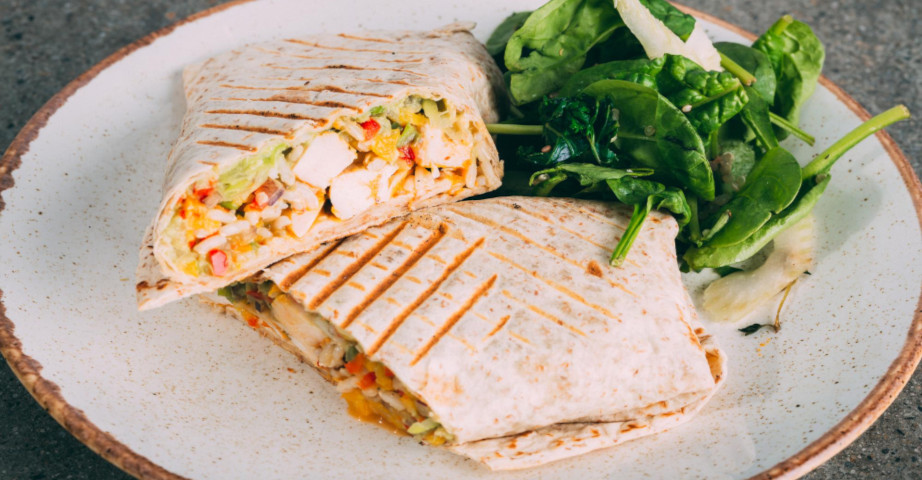Late night eating - is it really that bad?

Eating late at night is widely considered unhealthy and conducive to excessive weight gain. Is this actually one of the worst modern eating habits? Are there products or dishes that can be included in the evening menu?
Late night eating and dietary recommendations
One of the basic dietary recommendations is to eat meals regularly, at roughly equal intervals. Nutritionists recommend that the last meal should be eaten about 2-3 hours before bedtime.
Dinner should cover 20-25% of individual energy needs.
The ideal evening meal is an easily digestible dish composed of whole-grain cereal products, or complex carbohydrates, as well as plenty of vegetables, healthy fats and valuable protein sources such as lean meats and cheeses.
Consequences of eating late at night
Eating late at night is not a good option and can negatively affect the whole body's performance.
A hearty dinner just before bedtime makes us feel overeaten and sluggish. Leftovers in the intestines ferment, and thus can cause digestive discomfort and contribute to the occurrence of bloating, nausea, abdominal pain, as well as excessive gas, heartburn and reflux.
In addition, at bedtime, the metabolism slows down and the body is unable to digest a large portion of food in its entirety. This, in turn, causes the accumulation of excess macronutrients in the body in the form of fat. Nutritionists unanimously confirm that eating late at night promotes weight gain and excess body weight.
What's more, eating heavy meals late can contribute to sleep problems. A heavy dinner contributes to difficulties with falling asleep and problems with sleeping through the night, and also worsens the quality of sleep. Also interesting are the results of studies that suggest that carbohydrates consumed just before bedtime shorten the phase of deep rest.
Nighttime snacking also has a negative impact on our teeth. Saliva eliminates microorganisms and food debris from the mouth, exhibits antimicrobial activity and cares for enamel. However, during sleep, saliva production decreases significantly. Thus, after a meal consumed just before bedtime, bacteria develop in the mouth that can destroy enamel and contribute to the development of caries.
Impaired metabolism of carbohydrates and reduced glucose tolerance have also been observed in late meal eaters, which can lead to the development of type II diabetes in the long run. Research even suggests that eating a large dinner right before bed may increase your risk of heart disease.
Last meal by 6pm?
Dinner is one of the main meals of the day. A popular, commonly repeated slogan is that the last meal should be consumed before 6 p.m.
Is it a myth? In a way, yes.
The last meal should be eaten 2-3 hours before going to bed. Taking care of this break before bed will avoid digestive problems and allow the energy gained with dinner to be spent on activities before going to bed.
The time of taking the last meal of the day therefore depends on your daily habits and your individual daily rhythm. Dinner should be timed at an appropriate interval from previous meals, while being eaten no later than two hours before bedtime.
Therefore, among people who go to bed around 8-21 pm, 6 pm will actually be a good time to eat dinner. However, among those who prefer to fall asleep around 11 pm, a good time to eat would be 9 pm.
Recommended products
vWhat products to give up in the evening?
The time of eating your last meal is important, but what you eat at night is equally important. What food is better to give up in the evening?
It probably seems obvious to you that it is inadvisable to overeat sweets and fast-food products at night (in fact, at any hour it is not advisable to consume excessive amounts of such products).
Sugar in sweets acts as a stimulant and can contribute to sleep problems. In turn, fast food dishes, apart from the fact that they can also affect the sleep cycle, also promote heartburn and acid reflux.
Fast-food meals and all other fried and hard-to-digest dishes, as well as spicy and high-fat dishes, are not recommended in the late evening hours, as they burden the digestive system and may contribute to discomfort, a feeling of heaviness , heartburn and abdominal pain. n addition, it is worth remembering that the metabolism slows down at night, and thus the excess of hard-to-digest foods in the diet may contribute to the improper functioning of the digestive system and the deposition of excess fats in the form of adipose tissue.
The issue of eating fruit in the evening is also a popular question running through society. Can fruit be eaten before bedtime?
It is certainly a better choice than sweets or salty snacks, but you also have to be careful with fruits. Although these are valuable products that provide the body with significant amounts of vitamins and minerals, they are also a source of simple sugars. As we have already mentioned, in the evening the metabolism slows down, and thus is not able to completely burn the simple sugars supplied with the diet. This promotes weight gain and the accumulation of excess sugar in the form of body fat. In addition, food debris lingering in the intestines ferments and contributes to gas and bloating. Therefore, it is better to eat fruit during the day than at bedtime.
What to eat for dinner?
The meal consumed late in the evening should be easily digestible and in line with energy requirements, as the metabolism slows down at this time and heavy meals are not digested in full, which contributes to the accumulation of excess food in the form of body fat and promotes unpleasant discomforts such as bloating and gas.
The dish served in the evening should satisfy the feeling of hunger and provide satiety, but must not lead to a feeling of overeating.
Dinner should be full of vegetables and rich in full-grain cereal products. In addition, it should provide the body with good sources of protein, such as lean meats or cheese, and healthy fats, such as olive oil or canola oil.
In the evening menu, it is worth including foods that are a source of tryptophan, an amino acid that supports, among other things, the production of melatonin.
Melatonin is a hormone that takes care of the proper diurnal rhythm, as well as makes it easier to fall asleep and supports proper sleep quality.
Good sources of tryptophan are therefore articles such as lean meat, milk and dairy products, pumpkin seeds, tomatoes or rice.
How to fight evening hunger attacks?
Hunger attacks, if they are a daily habit, should raise your alarm and make you think about it. If you feel the need to satisfy hunger late at night, it may mean that your diet is not properly balanced.
The cause of hunger attacks may be skipping important meals during the day, such as breakfast, lunch or dinner, or an inadequate supply of energy. At that time, the body wants to replenish deficiencies and get additional calories into the system as soon as possible.
The solution is to keep an eye on meal times, regular consumption of meals, and to plan ahead for the food you eat. It is also worth taking care of the nutritional value of the meals you take in. A nutritious breakfast, a balanced lunch and a light dinner will ensure that you won't feel hungry before bedtime.
In addition to having an adequate energy supply in your diet, you should also make sure to replenish fluids and drink plenty of water.
Remember, too, that large amounts of simple sugars in the diet, and skipping important meals, cause drops in glucose levels in the blood. This, in turn, is manifested by weakness and a sudden feeling of hunger and an increased appetite for sweet snacks.

3 recipes for tasty and healthy dinners
Too much information can make give you a headache. Do you feel so confused now that you don't know yourself anymore, what can you eat late at night, and what is better to avoid?
Take a deep breath in and out, and focus for a moment more. We'll serve you 3 ready-made suggestions for valuable meals that you can consume in the evening.
Whole grain tortilla with tuna and vegetables
A light meal, and how delicious! Well, and just as importantly, quick to prepare.
To create a delicious dinner you need:
- whole grain tortilla,
- paprika,
- tomato,
- cucumber,
- lettuce,
- natural yogurt,
- tuna in its own juice,
- favorite spices.
Warm the whole grain tortilla pancake slightly in the oven or in a fat-free skillet, thinly spread it with natural yogurt and sprinkle it with your favorite spices (remember not to use spicy toppings overnight). Then put the tuna in its own sauce and finely chopped seasonal vegetables such as paprika, tomato, lettuce or cucumber on the bread. Then wrap the tortilla and enjoy the taste of a nutritious dinner!
Salad with goat cheese and roasted beets
Salads are always a great choice for a late-night meal. They are easily digestible, and provide a feeling of satiety. When preparing salads, you can change the ingredients at will, so that you can constantly enjoy the taste of a delicious dish, without the effect of boredom.
To prepare a delicious salad with goat cheese and beets you need:
- goat cheese,
- beets,
- arugula,
- pumpkin seeds,
- olive oil.
Wrap the washed and dried beet in aluminum foil and place in the oven. The beet should bake until it is soft. It usually takes about 45 minutes. In the meantime, wash the arugula and put it on a platter. Place the diced goat cheese on the arugula. Peel and slice the roasted beet into half-moons. Put on the rest of the ingredients. Sprinkle all the elements of the salad with pumpkin seeds and lightly drizzle with olive oil. Slowly consume the delicacy, savoring the aroma of healthy ingredients.
Bruschetta with vegetables
Bruschetta is a famous Italian snack that is also perfect as an evening healthy meal.
To prepare the dish you need:
- wholegrain bread (preferably a baguette),
- olive oil,
- garlic,
- tomatoes,
- fresh basil,
- cheese, e.g. mozzarella.
Cut whole-grain bread into slices. Crush garlic and mix together with olive oil. Grease the bread with the prepared fat. Dice the scalded and peeled tomatoes and place them on the baguette. Sprinkle the sandwiches with grated cheese and put in the oven for about 5 minutes. When the cheese melts, take out the bread and decorate with basil leaves. Delicious sandwiches - ready!
Sources:
- Jarosz M. (red): Normy żywienia dla populacji polskiej. Wyd. IŻŻ. Warszawa; 2017.
- https://www.ncbi.nlm.nih.gov/pmc/articles/PMC6893547/
- https://www.ncbi.nlm.nih.gov/pmc/articles/PMC8511346/
- https://www.ncbi.nlm.nih.gov/pmc/articles/PMC7052994/
- https://www.ncbi.nlm.nih.gov/pmc/articles/PMC4667395/

